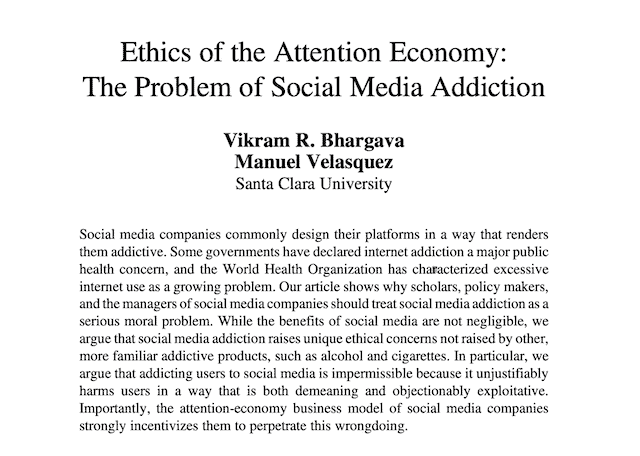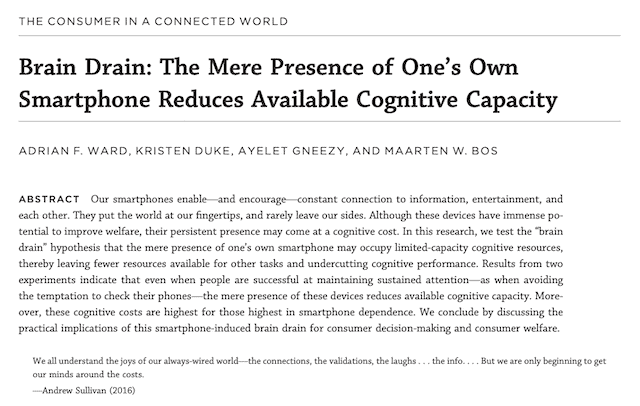
I recently read an important new article titled “Ethics of the Attention Economy: The Problem of Social Media Addiction.” It was written by Vikram Bhargava and Manuel Velasquez, two professors from Santa Clara University, and published earlier this fall in the journal Business Ethics Quarterly.
The article applies a rigorous ethical analysis to purposefully addictive social media platforms. In one section, for example, the authors deploy Martha Nussbaum’s influential capabilities approach to demonstrate that these platforms impair many of the elements required for a dignified human life. Their conclusion is that from a strictly philosophical perspective, service like Facebook, Twitter and Instagram present a “serious moral problem.”
This article is an important academic adjunct to the topics explored in the recent Netflix documentary, The Social Dilemma, and I highly recommend reading it.
I was also, however, intrigued by the concluding section, which explored implications and solutions (and cited Digital Minimalism, which I appreciated). This got me thinking about more radical responses to these present moral problems. I thought it might be fun to share one such, admittedly half-baked, notion here, with advance apologies to the originators of the many similar ideas I’m almost certainly inadvertently overlapping.
What if we got more serious about ceding users ownership over all of their social internet data: both what they’ve posted, but also their links; followers, friends, etc.?
Major legislative responses, such as the European Union’s GDPR, have tried to enforce data ownership, but what I have in mind is both simpler and more extreme.





